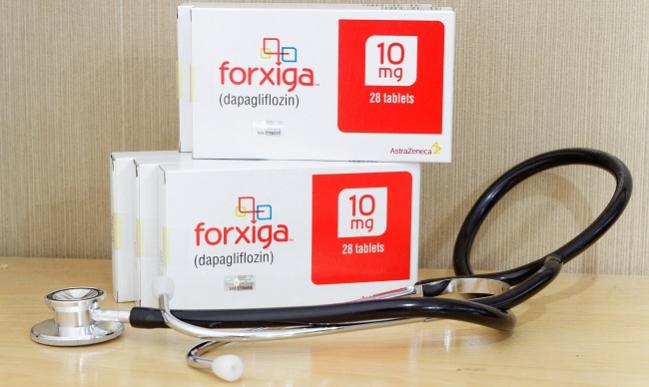Dapagliflozin Gets Partial Win in DECLARE-TIMI 58
Top-line results show the SGLT2 inhibitor reduced one of two co-primary endpoints in patients with type 2 diabetes and high CV risk.

Dapagliflozin (Farxiga) reduces cardiovascular outcomes in high-risk patients with type 2 diabetes, according to top-line results of the phase III DECLARE-TIMI 58 trial.
As drug maker AstraZeneca announced last week, the trial met one of two co-primary efficacy endpoints, demonstrating a reduction in a composite of CV death or hospitalization for heart failure with dapagliflozin versus placebo but failing to show a significant difference in MACE (CV death, MI, or ischemic stroke).
The primary safety endpoint of noninferiority for MACE was established, the company said, adding that full results will be presented in November at the American Heart Association 2018 Scientific Sessions in Chicago, IL.
Dapagliflozin is a selective sodium glucose co-transport 2 (SGLT2) inhibitor that is approved by the US Food and Drug Administration for use as an adjunct to diet and exercise to improve glycemic control in patients with type 2 diabetes. It is not approved for the prevention of CV events.
DECLARE-TIMI 58, conducted at 882 sites in 33 countries, tested whether dapagliflozin could reduce cardiovascular events when added to standard diabetes therapy in 17,295 patients with type 2 diabetes and an elevated CV risk—defined as having multiple CV risk factors or established CV disease.
The trial is part of a larger clinical program for dapagliflozin and precedes three additional phase III trials that are ongoing: Dapa-HF in patients with chronic heart failure and reduced ejection fraction, DELIVER in patients with heart failure and preserved ejection fraction, and Dapa-CKD in patients with chronic kidney disease.
Todd Neale is the Associate News Editor for TCTMD and a Senior Medical Journalist. He got his start in journalism at …
Read Full BioSources
AstraZeneca. Farxiga achieved a positive result in the phase III DECLARE-TIMI 58 trial, a large cardiovascular outcomes trial in 17,000 patients with type 2 diabetes. Published on: September 24, 2018. Accessed on: October 1, 2018.


Comments